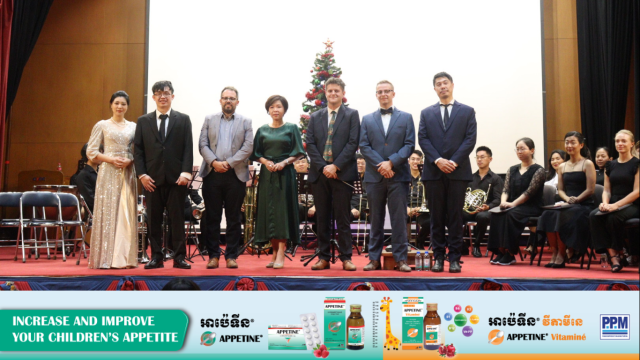Heng Somphospheak–Expressing Cambodia’s Reality in Literature

- By Sao Phal Niseiy
- August 22, 2021 6:30 PM
As a recipient of a Chevening Scholarship, which is funded by the United Kingdom government, Heng Somphospheak is currently pursuing a Master of Arts in Creative Writing and Critical Life at the University of Leeds in England. She shares her thoughts on why creative writing matters in today’s society.
Sao Phal Niseiy: What prompted you to undertake a master’s degree in “Creative Writing and Critical Life?” Why is this field special to you? And would you describe what the courses address and the subjects on which you have chosen to focus during your studies.
Heng Somphospheak: What makes this course special to me is that it forms a bridge between creative writing and critical writing, the two registers which are typically kept apart. This course draws out the critical aspects of creative writing and the creative dimensions of critical writing. In pursuing my MA in Creative Writing and Critical Life, I took compulsory modules to enhance my research and writing skills. To address the concept of critical life, this course covers theories and schools of criticism such as gender studies and queer theory, postcolonialism and race theory, psychoanalysis and poststructuralist theory. In my MA project, I combine my interest in feminist discourse with dystopian literature and write a standalone creative piece inspired by the tragic events in Cambodian history.
Sao Phal Niseiy: Why do you think others should also consider this major? What do you think they would learn and what benefits would they gain from it exactly?
Heng Somphospheak: In considering the intersection between creative writing and critical writing, this major imbues learners with a strong and unique skillset. It offers plenty of opportunities for students to engage with a wide variety of literary genres as both critical readers and creative practitioners. As students learn to critically examine texts through different theoretical lenses, they will also be pushed to think outside the box to produce their original work. As this is a major that focuses not only on what one writes but also on how one writes it, it enables students to communicate their ideas more effectively and eloquently. In addition, undertaking this degree could also help students gain a better understanding of and possibly form a positive relationship with themselves. The hallmark of creative writing is to share the human experience, and that begins with the writers themselves. In such a manner, it encourages self-exploration and self-discovery.

Sao Phal Niseiy: As an expert in your field of expertise, can you explain how important creative writing is?
Heng Somphospheak: On a personal level, creative writing is an outlet for one’s talents, energies, interests and emotions. It offers human beings a platform to express feelings about themselves and their surroundings. Thus, it helps us explore the past and present human experience and lets future generations relive it. In this way, it has a vital role in preserving and promoting identities and cultures. Furthermore, as literature is a medium through which ideologies, beliefs, and values are conveyed to the public in the most intellectual and entertaining form, creative writing as the process of producing the works of literature is a powerful asset. It can be used as a means to liberate society from social conventions and stereotypes, to condemn socio-economic imbalance in society, to empower disadvantaged groups, and so much more. Thus, I believe that creative writing enables people not only to explore the past and present but also to write a better future.
Sao Phal Niseiy: Do you think it is possible for someone to build or acquire writing skills? Would you share with us tips on how to be a good creative writer?
Heng Somphospheak: “Talent vs. Hard Work” is a never-ending debate. I believe that, just like a diamond in the rough, every person possesses a gift of writing, but some may need more refinement and polish than others for the skill to shine. Hence, I think persistence and a growth mindset are key to being a good creative writer. It is useful to develop a habit of reading and writing. Equally important, having your writing piece read and criticized by others can offer illuminating insights into your writing process and product. Thus, being brave and open-minded to both positive and negative feedback contributes to your growth as a writer.
Sao Phal Niseiy: What are your plans following your graduation? Are you also going to enter the writing industry and become a writer? Do you also plan to take part in building up a good writing community in our country?
Heng Somphospheak: It is almost every creative writer’s dream to have his or her work published, widely read and discussed. Regardless of which industry I will be in, I hope my writing will inform and educate people. Through writing and teaching, I look forward to contributing to the writing community in our country and inspiring people to be critical readers and authors who are capable of not only appreciating cultural values but also challenging the societal norms through composing timeless literature to make a difference in society.















